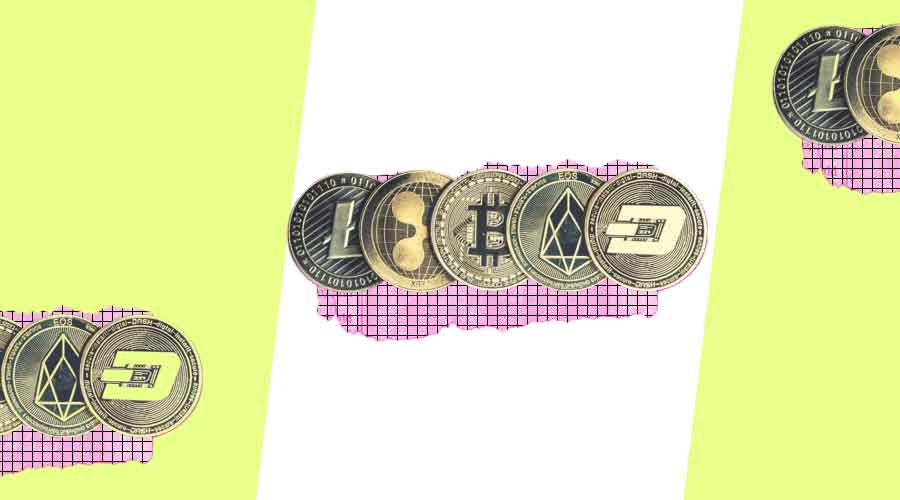 Altcoin Alchemy: Top 10 Trends Revolutionizing the Crypto Market Landscape and Beyond
Altcoin Alchemy: Top 10 Trends Revolutionizing the Crypto Market Landscape and Beyond
In the ever-evolving landscape of cryptocurrencies, the rise of alternative coins, or altcoins, has become a defining feature. While Bitcoin remains the household name, altcoins bring diversity to the digital currency realm, each offering distinct features and utilities. This article delves into the dynamic space of altcoins, exploring the top 10 emerging trends that are reshaping the crypto market. From decentralized finance (DeFi) innovations to the integration of Non-Fungible Tokens (NFTs), altcoins are propelling the industry forward with groundbreaking solutions. Understanding these trends is not just crucial for investors but for anyone keen on grasping the transformative forces steering the future of blockchain and digital assets. Join us on a comprehensive journey through the exciting developments in the world of altcoins.
Understanding Altcoins: A Brief Overview
To understand the significance of emerging altcoin trends, it’s essential to grasp the broader context of what altcoins are and their role in the cryptocurrency market. Altcoins represent a diverse array of digital currencies that have emerged as alternatives to Bitcoin. Unlike Bitcoin, which primarily serves as a digital store of value, altcoins often aim to provide innovative solutions, address specific challenges, or cater to niche markets.
Top 10 Emerging Altcoin Trends
1. DeFi Dominance
Decentralized Finance (DeFi) has been a transformative trend in the crypto space. Many altcoins actively contribute to the growth of DeFi by facilitating lending, borrowing, and yield farming. Altcoins that enhance the functionalities and efficiency of DeFi protocols are gaining significant traction.
2. NFT Integration
Non-Fungible Tokens (NFTs) have witnessed an unprecedented surge in popularity, particularly in the digital art and collectibles market. Altcoins focusing on NFT capabilities, such as improved scalability, reduced environmental impact, and enhanced security, are becoming key players in this space.
3. Layer 2 Solutions
Scalability remains a significant challenge for blockchain networks, particularly in handling a high volume of transactions. Altcoins offering effective Layer 2 scaling solutions, such as sidechains and rollups, are gaining prominence as they contribute to improving transaction throughput and reducing fees.
4. Privacy Coins
Privacy and anonymity are fundamental concerns for cryptocurrency users. Altcoins that prioritize advanced privacy features, including confidential transactions, ring signatures, and zero-knowledge proofs, are gaining attention as users seek enhanced confidentiality in their transactions.
5. Cross-Chain Compatibility
Interoperability has become a key focus for many altcoins, aiming to create a seamless experience for users across different blockchain networks. Altcoins facilitating cross-chain compatibility enable the smooth transfer of assets and data between diverse blockchains.
6. Smart Contract Platforms
While Ethereum pioneered the concept of smart contracts, several altcoins are emerging as strong contenders in providing more scalable and efficient smart contract platforms. This trend reflects the growing demand for decentralized applications (DApps) and more sustainable blockchain solutions.
7. Sustainability Initiatives
Environmental concerns related to blockchain networks, especially those using proof-of-work consensus mechanisms, have led to increased scrutiny. Altcoins that adopt eco-friendly consensus mechanisms, such as proof-of-stake or delegated proof-of-stake, are gaining traction as the crypto community places greater emphasis on sustainability.
8. Decentralized Autonomous Organizations (DAOs)
Altcoins that support the development and governance of Decentralized Autonomous Organizations (DAOs) are gaining attention. These projects empower communities to make collective decisions in a decentralized manner, fostering a sense of ownership and participation among token holders.
9. Tokenization of Real-World Assets
Altcoins venturing into the tokenization of real-world assets, such as real estate or commodities, are at the forefront of bridging the traditional and digital economies. These projects enable fractional ownership, liquidity, and easier transferability of real-world assets on blockchain platforms.
10. Governance Tokens
Projects that issue governance tokens, allowing holders to participate in decision-making processes, are becoming integral to the decentralized governance model. Altcoins with robust governance structures empower their communities to influence the project’s direction, making decisions on upgrades, protocol changes, and other crucial aspects.




